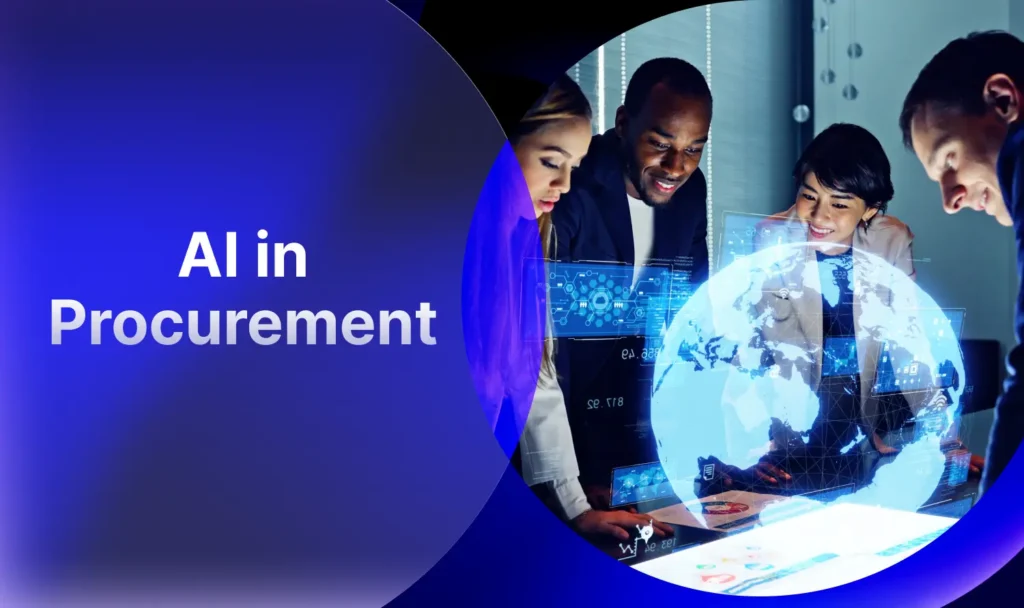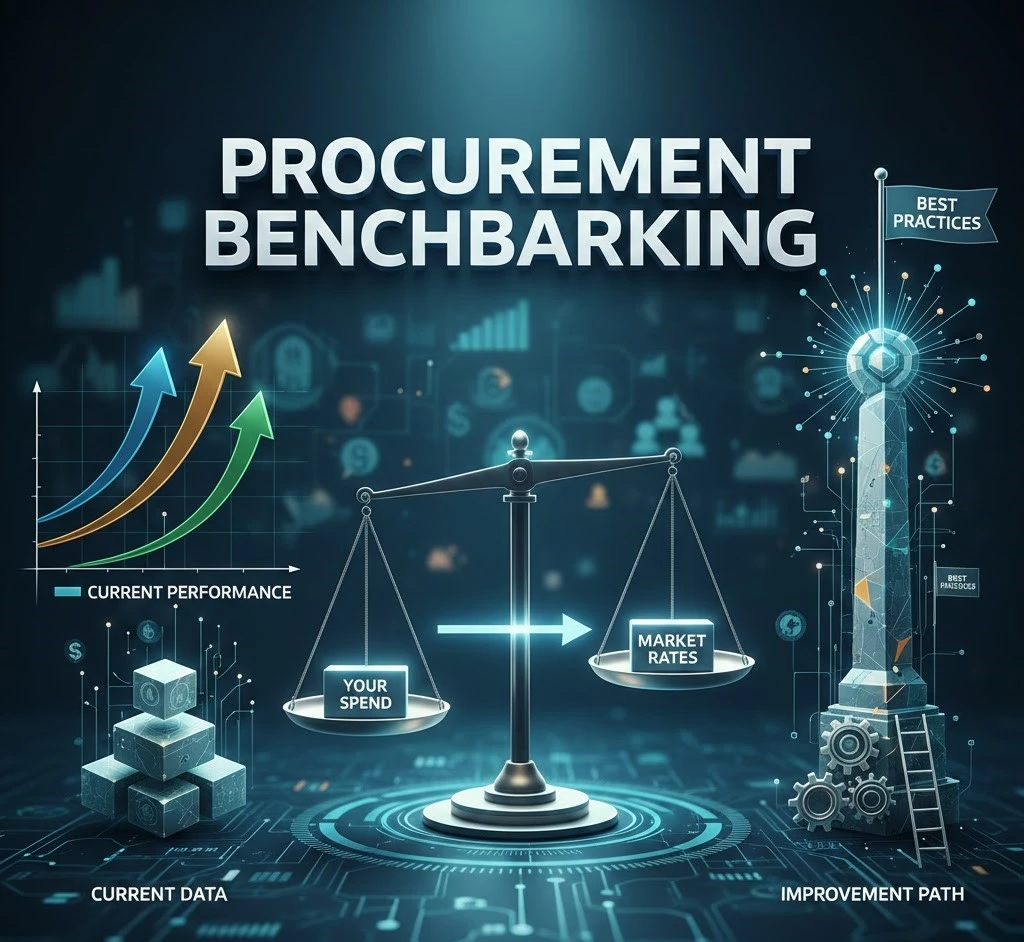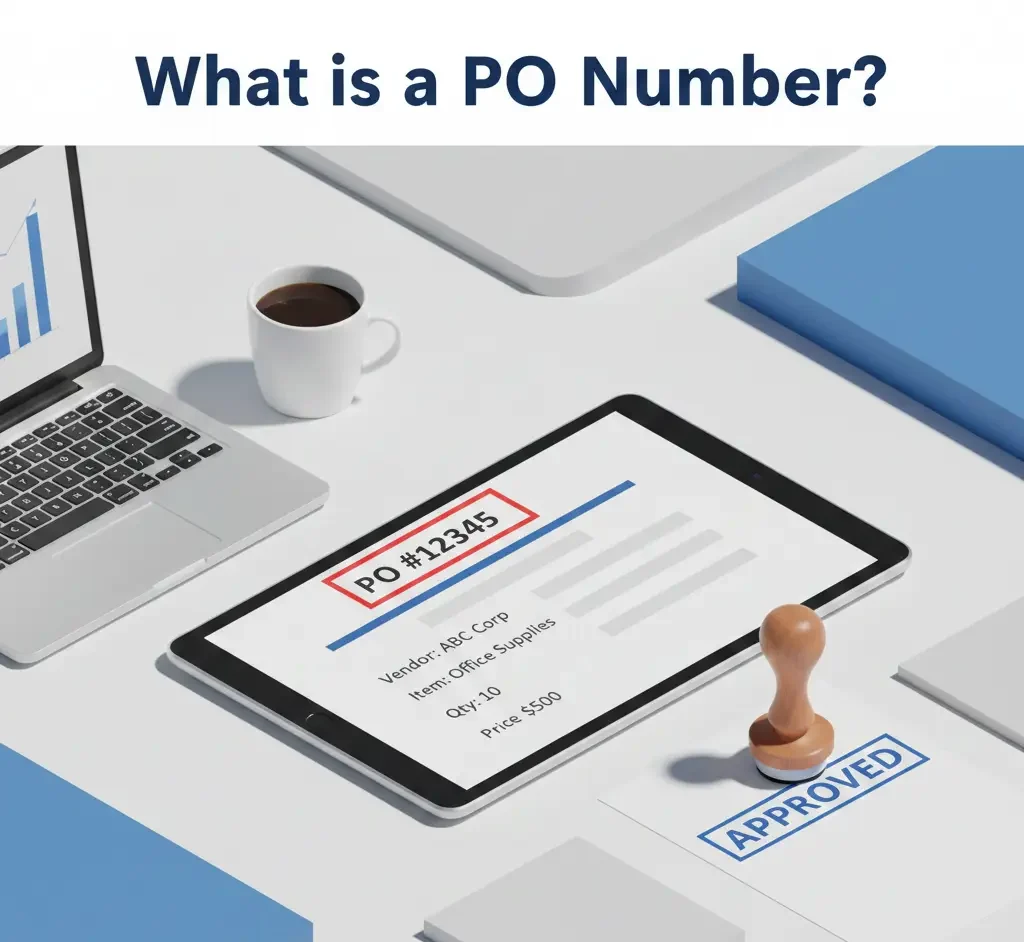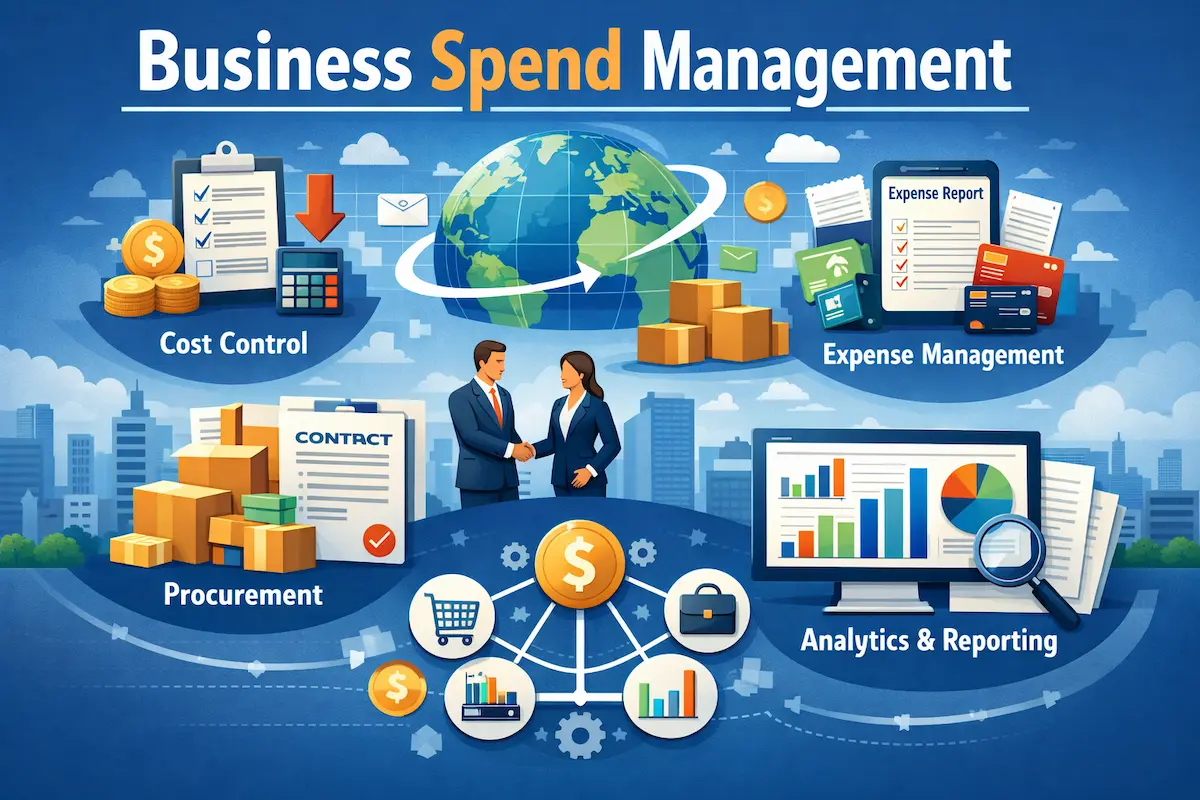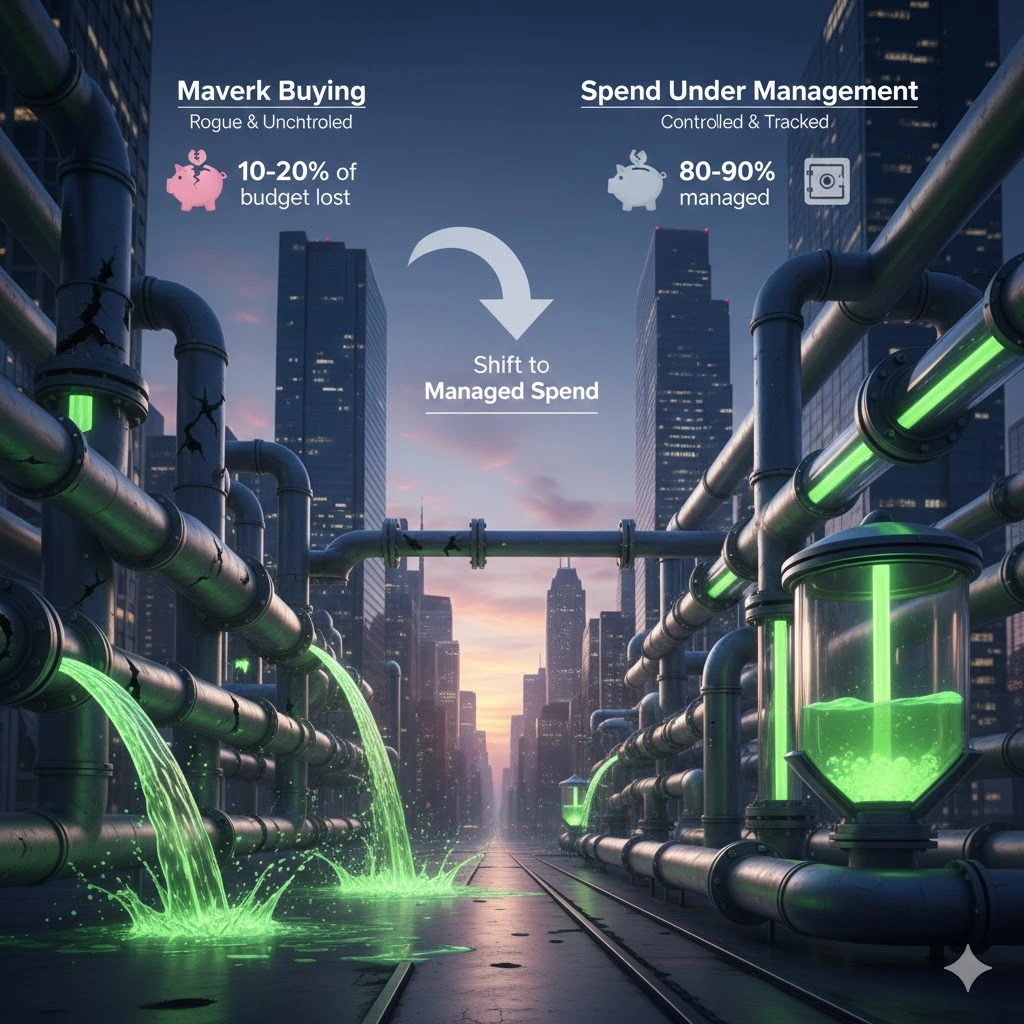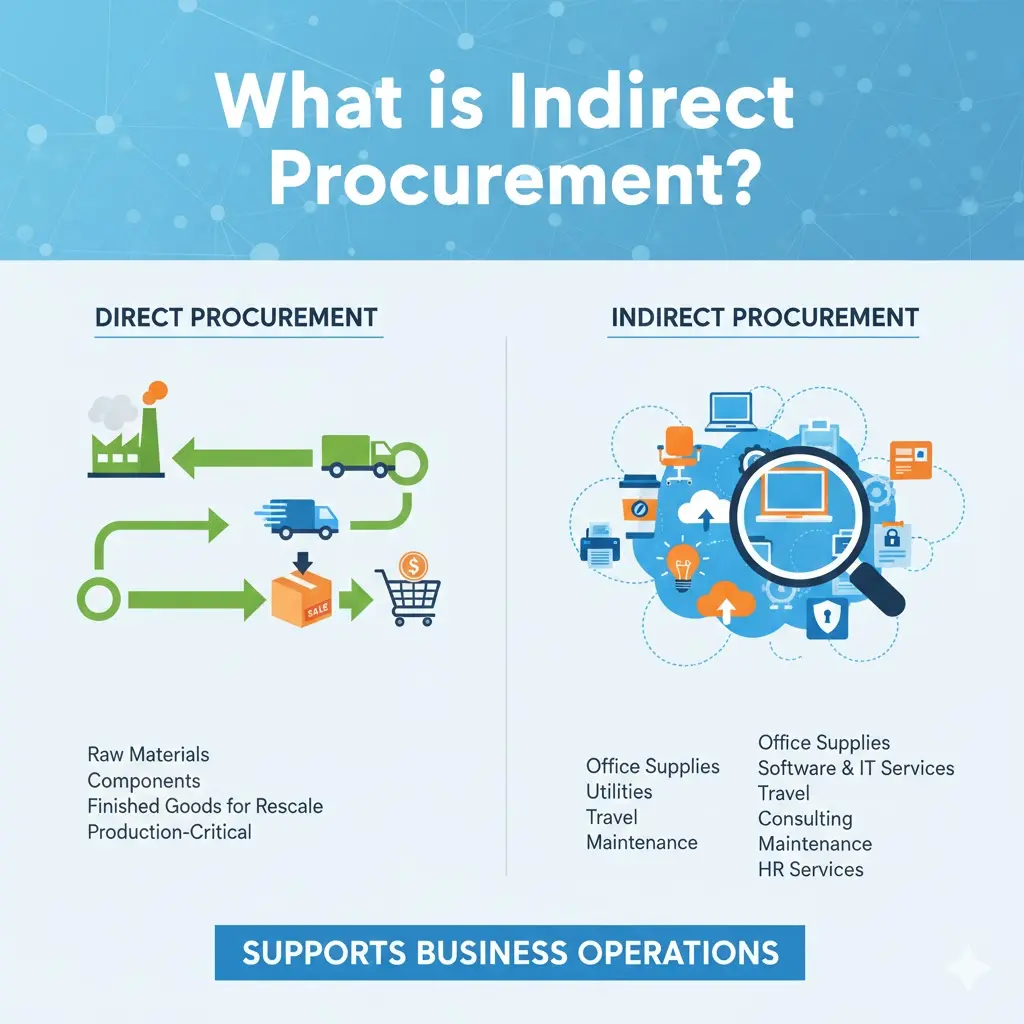In today’s rapidly changing market, procurement teams are consistently expected to think fast, make wise decisions and oversee their budgets and suppliers. Using Artificial Intelligence (AI) in procurement has brought about major changes in the way businesses get and control their goods and services. Using AI in the workplace enables firms to automate similar tasks, analyze large amounts of information and learn from data to help make procurement more efficient and creative. We realize at Pro Procurement that by using AI, organizations can remain relevant and competitive in an industry that’s changing constantly. Here, you will find information on using AI in buying, the main AI technologies involved, real scenarios and tips on maximizing procurement with AI.
What is Artificial Intelligence in Procurement?
In procurement, AI is about applying advanced algorithms and learning technology to increase efficiency and quality of the way businesses get their supplies. AI replaces manual searches by examining big volumes of information to find patterns, predict what will happen and help companies make smart buying decisions. AI helps companies take on more advanced procurement practices, as it handles routine work quickly such as requesting purchase orders, signing off on invoices and testing whether suppliers pose risks. Especially with artificial intelligence, procurement teams are able to see up-to-date data on their budget, suppliers’ actions and the latest trends in the industry. Using artificial intelligence in procurement allows companies to choose better sources, cut down on costs and ease teamwork between suppliers, making the supply chain flexible and strong.
Key AI Technologies Used in Procurement
Using advanced technologies, artificial intelligence in procurement helps organizations work more efficiently and quickly. Let’s take a look at the leading types of AI that are changing how procurement is done:
Machine Learning (ML):
By analyzing old data from procurement, ML algorithms are able to catch patterns and trends. Because of this, procurement teams can make decisions based on real information from spending, supplier risks and demand plans.
Natural Language Processing (NLP):
AI can understand and interpret human language because of NLP. With this technology in procurement, you can use online chatbots for supplier communication, automate the review of contracts and discover useful information from unstructured data.
Robotic Process Automation (RPA):
RPA handles tasks that repeat on a regular basis, for example, making purchase orders, matching invoices and completing data entry. It lessens errors in the system so that procurement professionals can pay more attention to important tasks.
Predictive Analytics:
Through the use of historical and current data, predictive analytics determines likely future demands for supplies, supplier results and market shifts. As a result, businesses can be prepared for risks and improve their sourcing activities.
Computer Vision:
Mostly used for quality assurance and inventory management, computer vision helps AI systems look at items and track stock which makes sure everything is accurate and reduces waste.
Working together, these technologies help enhance procurement operations and ensure they happen faster, smarter and with fewer errors.

Benefits of AI in Sourcing and Procurement
The use of AI in procurement supports higher efficiency in workflow and makes important strategic decisions easier to make. These are some of the biggest benefits you should be aware of:
- Improved Efficiency and Automation: The use of AI speeds up repetitive actions such as purchasing, making invoices and registering suppliers. As a result, you spend less time on repetitive tasks, processes are done quicker and errors are minimized.
- Cost Savings: Analyzing expenditures and evaluating suppliers allows AI to recommend solutions for reducing costs, including improved bargaining, the best buying practices and forecasting so companies do not overstock.
Learn more about optimizing procurement for cost savings. - Improved ways to manage supplier risks: AI keeps an eye on supplier information and current market conditions and flags any early potential risks, enabling procurement teams to stop issues before they become serious.
- Better Decisions Based on Data: With AI, insights into costs, the performance of suppliers and contractfulness are provided in real time. Such information allows procurement teams to select the best sources more effectively.
Explore how AI contributes to strategic sourcing - Getting Suppliers Involved: ACI opens up a new way for organizations to build dependable and responsive relationships with their suppliers.
- More Agility and Scalability: AI allows businesses to respond and adjust to market shifts quickly and handle procurement operations smoothly, keeping them in the running with competition.
Utilizing these benefits helps companies turn procurement from a cost section to a key area for development.
Practical Use Cases of AI in Procurement
Artificial intelligence is now a practical tool shaping procurement in different industry sectors. Let’s explore several situations where AI is improving the way we purchase items:
- Automatic Evaluation of Supplier Risks: Using data from reports, articles and networking platforms, AI alerts businesses about any risk of dangerous events like bankruptcies or rule-breaking from their suppliers.
- Spend Analytics and Optimization: Procurement data is analyzed by AI algorithms which spot spending trends, group purchases and point out possible areas to trim costs, improve budget management.
- Contract Management and Analysis: By using natural language processing, AI reviews contracts for compliance, brings attention to important terms and notes odd phrases so as to lower risks and speed the contract review process.
- Demand Forecasting: Machine learning allows businesses to learn what products they will need in the future, avoiding both running out of certain goods and storing too much of them.
- The process of choosing and appraising suppliers: Analysis performed by AI systems using performance, speed, pricing and quality of suppliers helps decide which will work best for different projects, boosting the results of procurements.
- Chatbots and virtual assistants: Procurement professionals can spend their time on difficult tasks because suppliers and customers get standard queries managed by chatbots.
- Automation for Invoice Processing: Using both RPA and AI, the data from invoices is browsed, linked to purchase orders and used to complete the payments with only minimal help from employees.
Artificial intelligence is demonstrated to make procurement more efficient, limit risks and strengthen decision-making throughout its full process.
How to Successfully Implement AI in Procurement
You should use a carefully planned strategy when using artificial intelligence in procurement, so the technology supports the company’s aims. First, organizations should clarify what they want to achieve,it might be cutting expenses, better handling supplier issues or speeding up procurements. You should start with short pilot projects that show improvements and win support from staff. AI depends on quality data; if the data is messy, it won’t supply the correct insights which is why spending on data management and integration is so important. Deciding on the AI tools required for procurement which also suit the organization’s current technology platforms, is no less important. By collaborating, procurement, IT and data experts can work smoothly and identify and resolve challenges as early as possible. Supporting AI adoption by teaching procurement teams makes it easier and allows for greater benefits. Always checking and optimizing AI applications ensures they stay relevant as things in the market and within the organization progress. When companies use a smart and slow process, they can fully gain from AI and achieve important changes in procurement.
Stay informed on 2025 procurement trends.
Examples of AI Procurement Tools
The success of any AI use in procurement depends greatly on the platform selected. Many strong AI-powered tools for procurement have arisen and each offers something different to the market.
SAP Ariba helps manage supplier risks by automating tasks, improves spend analytics and speeds up processing contracts throughout their lifecycle. Businesses can find the best suppliers and work out better deals by trusting the AI-driven advice provided by AI.
GEP SMART uses the combination of AI and powerful analytics to give you in-the-moment updates on your procurement efforts. Thanks to machine learning, the tool helps forecast demand, automates how suppliers are chosen and allows managers to check how well they are doing, making it useful in data-driven procurement.
Coupa uses artificial intelligence to support better spending control and cooperation with suppliers. Its AI solution finds chances for cost savings, detects dangers with suppliers and automatically approves purchases, allowing businesses to comply while keeping costs low.
Zycus uses AI technology to automate procurement, supplying tools for activities from identifying suppliers to managing contracts. With natural language processing, the contracts are analyzed and the use of robotic process automation simplifies how procurement tasks are done.
All these platforms apply AI to procurement differently, making it easier for businesses to automate common tasks, use insightful data and boost their ways of getting products. At Pro Procurement, we suggest choosing these tools after considering how well they meet your company’s needs.
The Future of AI in Procurement
Artificial intelligence is set to lead the way to further innovation and change in procurement. As AI improvements happen, procurement staff will be able to predict market upheavals and possible disruptions in suppliers with higher precision. Higher adoption of both AI and blockchain is likely to occur in the future, improving the visibility and safety of supplier interaction. Furthermore, AI will help companies monitor their environmental footprint and ensure they get their supplies responsibly. Self-driven procurement systems could take over most of the sourcing work, letting professionals in this field turn their attention to important strategy roles. Using AI in procurement lets early adopters keep costs down, communicate well with vendors and adapt their supply processes accordingly, giving them an advantage over others. Our team helps organizations by offering help and advanced AI tools that match their goals in procurement.
Conclusion:
In procurement, artificial intelligence is not a passing trend it is having a big impact on how groups handle sourcing, partner with vendors and spend their money. Using machine learning, natural language processing and robotic process automation, organizations can improve their efficiency, reduce their expenses and make wiser choices based on data. AI is applied in risk assessment, forecasting, contract handling and much more, all of which help improve procurement at every level. Pro Procurement believes that AI should be a key part of procurement strategies for organizations that want to keep up in today’s changing market. If you use the correct AI solutions and develop a proper plan, sourcing can become a powerful advantage that speeds up your company’s growth.
Connect with Pro Procurement Today!
FAQs
Q1: What role does Pro Procurement play in integrating AI?
To improve ROI and expedite your procurement procedures, Pro Procurement provides specialised AI solutions and professional consulting.
Q2: Is it possible for Pro Procurement to modify AI tools for my company?
Yes, in order to achieve the best results, we tailor AI platforms to your industry’s demands and procurement objectives.
Q3: Does Pro Procurement offer AI procurement tool training?
To guarantee that your team uses AI technologies efficiently, we offer thorough training and support.
Q4: How soon can Pro Procurement put AI solutions into practice?
Although implementation schedules differ, our phased strategy guarantees rapid adoption and positive results.
Q5: Can Pro Procurement’s AI solutions enhance supplier relationships?
Without a doubt, our AI-powered solutions improve performance monitoring and communication to fortify supplier relationships.

